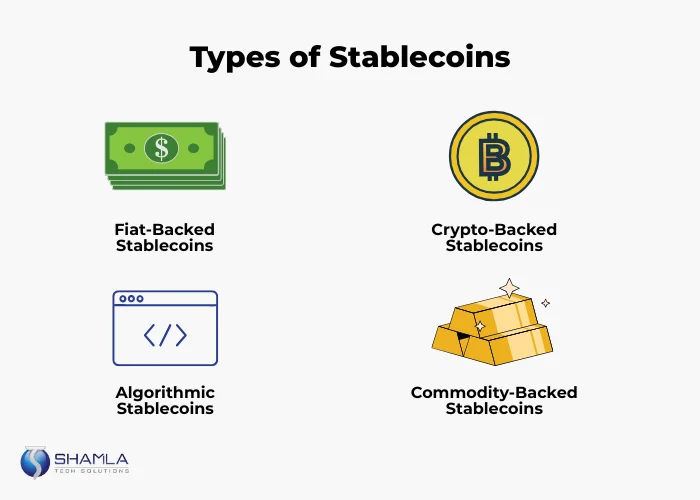Savor the Flavors: Bombay Beijing Fine Foods
Exploring the fusion of Indian and Chinese cuisines with delicious recipes and culinary tips.
Stablecoins in Gaming: The Cryptic Currency Changing the Game Landscape
Discover how stablecoins are revolutionizing gaming with seamless transactions and new opportunities. Dive into the future of play today!
What are Stablecoins and How are They Revolutionizing the Gaming Industry?
Stablecoins are a type of cryptocurrency designed to maintain a stable value by pegging their price to a reserve of assets, commonly fiat currencies like the US dollar or commodities like gold. This stability makes them particularly appealing in the gaming industry, where volatility can deter players from fully engaging in virtual economies. Unlike traditional cryptocurrencies, which can experience dramatic price swings, stablecoins provide a reliable medium of exchange, allowing gamers to trade in-game assets without constantly worrying about fluctuating values.
The integration of stablecoins into gaming ecosystems is revolutionizing the way players interact with both in-game currencies and real-world transactions. By utilizing stablecoins, developers can create seamless payment systems, enabling microtransactions and real-time trading of digital assets. This innovation opens new opportunities for game monetization and enhances player experiences through features like provably fair gaming, where transactions are transparent and secure, fostering trust within the community.

Counter-Strike is a highly popular tactical first-person shooter game that emphasizes teamwork and strategy. Players can engage in intense matches where they take on the roles of terrorists or counter-terrorists, each with distinct objectives. For those interested in enhancing their gaming experience, using a betpanda promo code can provide added benefits.
The Benefits of Using Stablecoins in Gaming: A Comprehensive Guide
The rise of stablecoins in the gaming industry is transforming how players engage with digital assets and in-game economies. Unlike traditional cryptocurrencies, stablecoins are designed to maintain a stable value, typically pegged to a fiat currency like the US dollar. This stability allows for seamless transaction experiences, reducing the volatility that can deter gamers from using digital currencies. By integrating stablecoins into gaming platforms, developers can enhance in-game purchasing options, reward systems, and player-driven economies, ensuring that players retain value and can reliably make transactions without the fear of price fluctuations.
Moreover, the use of stablecoins can greatly enhance the inclusivity of gaming platforms by allowing a wider range of players to participate in the economy. Features such as cross-border transactions become feasible when using stablecoins, thus removing the barriers posed by traditional banking systems. Players can easily exchange gaming currencies, purchase in-game items, and trade assets with a security that ensures their funds are not subject to drastic changes. As the gaming community continues to embrace digital currencies, understanding and utilizing stablecoins will provide a significant competitive advantage for both gamers and developers alike.
How Stablecoins Can Enhance In-Game Economies and Player Experiences
Stablecoins have emerged as a revolutionary financial instrument in the realm of digital currency, and their integration into in-game economies offers various benefits for both developers and players. Unlike volatile cryptocurrencies, stablecoins are pegged to traditional currencies or assets, providing a reliable medium of exchange. By implementing stablecoins, game developers can create seamless transaction systems that enhance player experiences by minimizing the risks associated with fluctuating in-game currencies. For example, players can purchase in-game assets or participate in events with confidence, knowing that their investments will retain value.
Furthermore, the use of stablecoins can foster a sustainable in-game economy by encouraging real-world financial behaviors among players. With a stablecoin-backed ecosystem, players can earn rewards that are not only useful within the game but also convertible to fiat currencies or other cryptocurrencies. This creates an engaging feedback loop: as players invest in the game and continue to engage with its economy, they become more likely to participate in additional transactions. Ultimately, this enhances the overall gaming experience by promoting participation, fostering community, and stimulating long-term loyalty.